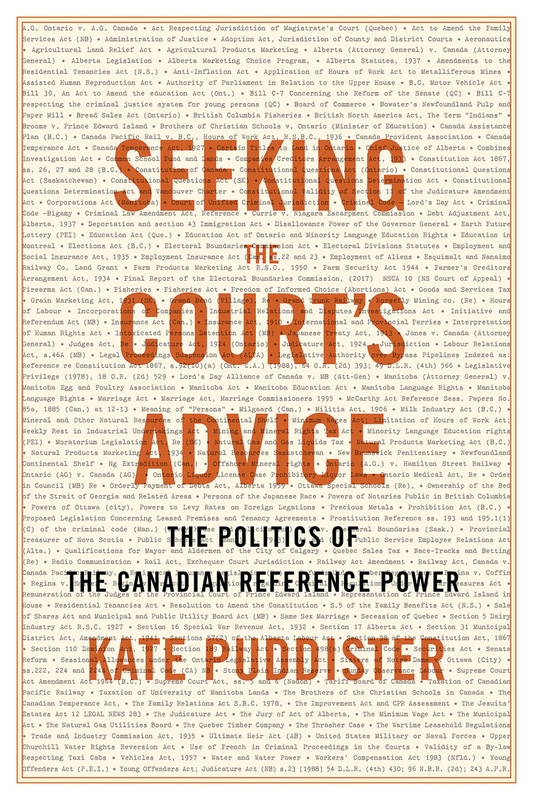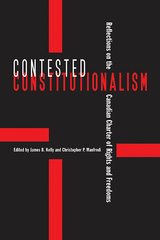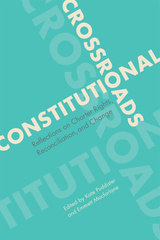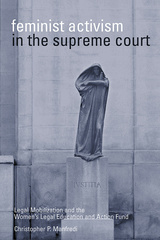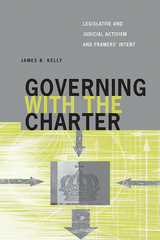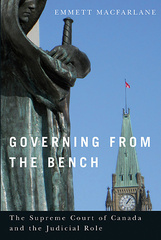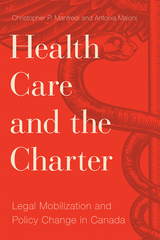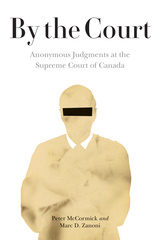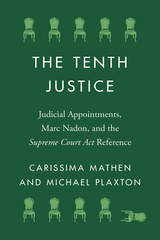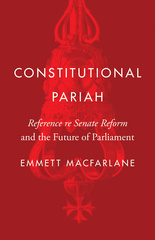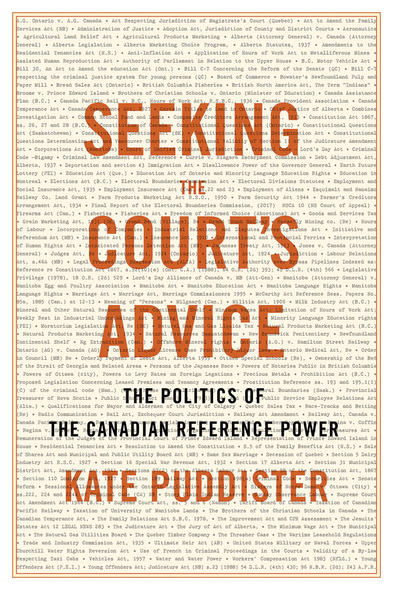
Seeking the Court’s Advice
The Politics of the Canadian Reference Power
Can Parliament legalize same-sex marriage? Can Quebec unilaterally secede from Canada? Can the federal government create a national firearms registry? Each of these questions is contentious and deeply political, and each was addressed by a court in a reference case, not by elected policy makers.
Reference cases allow governments to obtain an advisory opinion from a court without a live dispute and opposing litigants. There are few, if any, parameters on what governments can ask courts in these cases, and governments often wield this power strategically. Through a reference case, elected officials can insert the courts and the judiciary into political debates that can be both contentious and normative. With novel insight and analysis, Kate Puddister argues that judicial review can help elected policy makers achieve political ends, beyond the legal clarification provided by a reference decision.
Seeking the Court’s Advice is the first in-depth study of the reference power, drawing on a comprehensive assessment of over two hundred reference cases from 1875 to 2017. Puddister demonstrates that the actual outcome of a reference case – win or lose – is often secondary to the political benefits that can be attained from relying on courts through the reference power.
This book will appeal to researchers, scholars, and students of law and politics, Canadian politics, legal studies, political science, Canadian history, and public policy. Legal professionals, public officials, and members of the media will also find the book to be a valuable resource.
this is an excellent book that completely fills a major and unfortunate lacuna in the academic literature. It is well organized, well written, thorough and balanced, and it winds up with recommendations for better squaring the practice with judicial independence concerns.A first book, you say, and by a very junior author? It certainly doesn’t read that way—this is a polished work of mature scholarship. I recommend it highly.
[Puddister] manages to provide a superb and comprehensive analysis of the development, evolution, and purposes of the reference power.
…Seeking the Court’s Advice will likely affect the way the power is exercised and conceived of by governments, interveners, and courts.
In this timely, original, and outstanding book, Kate Puddister explores a neglected yet enduring and vital dimension of the judicialization of politics in Canada – the ability of cabinets to seek the advice of the highest courts through the reference procedure. In Seeking the Court’s Advice, Puddister clearly demonstrates, through a comprehensive analysis of every reference submitted since Confederation, the political calculations that motivate cabinets to submit constitutional questions to the court. This important book will be of great interest to Canadian and comparative scholars of federalism, parliamentary democracy, and the judicialization of politics.
Reference cases have an outsized influence on constitutional law and politics in Canada. Seeking the Court’s Advice explains how references are used as a political tool, why democratic elites are ceding decision-making authority to the courts, and how this practice affects Parliament, the executive, and the judiciary. This book makes a significant contribution to our understanding of law, politics, and democracy in Canada.
Introduction: Reference Cases as a Mix of Law and Politics
1 Origins and Implications of the Reference Power
2 Contestation and Reference Cases
3 Routine Politics and Nonroutine Litigation: References after 1949
4 “It’s Always a Little Bit of Politics”: Why Governments Ask Reference Questions
5 Why Not Refer Everything? The Padlock Act and Blasphemy
6 Seeking the Court’s Advice and the Delegation of Decision Making
Conclusion: A Legal Solution to Political Problems
Appendix A: Canadian Reference Legislation
Appendix B: Reference Case List
Notes; References; Index

